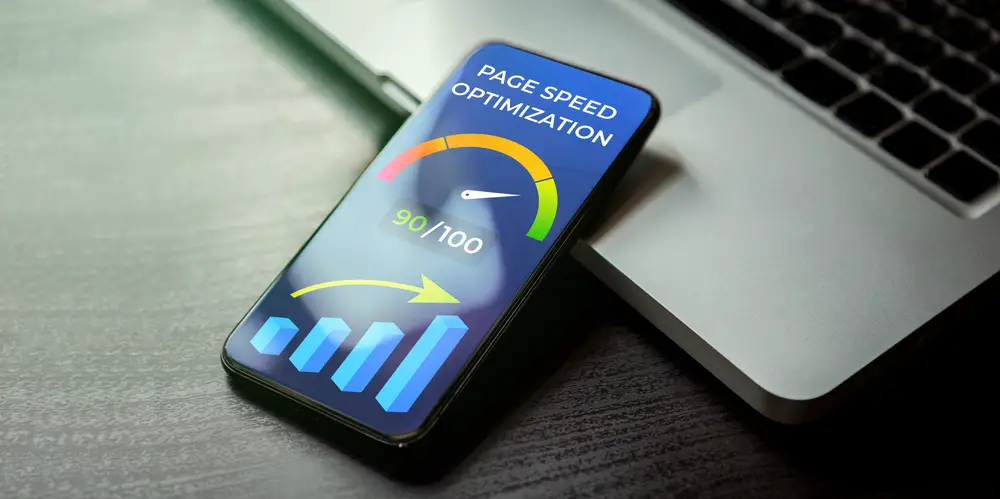Written By London SEO Agency
eCommerce SEO services performance and user experience can be affected by page load speed. In today's fast-paced digital world, quickness is crucial. In the case of website SEO services, even a minor delay in website launch can have major consequences for the business. This essay examines the complex relationship between page speed and mobile SEO services and its effects on user engagement, search rankings, and online success.
In a world of rapid gratification, waiting for a web page to load may seem like an eternity. Page speed is the time it takes a website SEO audit services to load and become interactive. Milliseconds measure page speed. Its usefulness in information and communications technologies is unquestionable. Page load time is now a ranking criteria for technical SEO services as well as a user experience consideration.
Understanding the Significance of Pages Per Minute
Page load times affect user engagement and irritation. According to statistics, internet users are more likely to leave a page that takes more than two seconds to load. This can hurt website’s bounce rates, conversion rates, and a website's revenue.
Page load time and user experience
Imagine clicking on a search result and being disappointed when the webpage takes a long time to load after waiting so long. Pushing the back button alleviates frustration. Google knows this, therefore it prioritises search results that improve user experience. Page speed helps global SEO services retain visitors, which lowers bounce rates and signals to YouTube SEO services that the content is relevant and useful.
Completion vs. Abandonment
Bounce rates indicate the percentage of website visitors that leave after reading one page. Bounce rates—the percentage of website visitors who leave after seeing one page—are directly affected by page speed. Visitors become impatient and look for faster-loading pages. This increases bounce rate. However, faster-loading pages can boost conversion rates by making clients' SEO consultancy services navigation easier and more productive.
Search engines crawl and index.
Web crawlers index the massive volumes of online content for UK based SEO Agency for Accountants . Crawlers may struggle to index a slow-loading website. This is problematic. Delay or partial indexing can prevent search engines from finding your vital material. Because search engines don't see it.
Mobile-Friendliness and Loading Time
Page load times on mobile devices have become crucial due to search engines prioritising mobile content. Mobile customers expect the same fast loading rates as desktop users, and failing to meet this expectation can hurt search engine rankings and user experience. Mobile users demand desktop-like loading speeds.
Internet basics: adding a new page load time criterion.
The Core Web Vitals measure real-world web page loading experience. Google introduced Core Web Vitals metrics. These metrics include LCP, FID, and CLS. Search engine algorithms may favour SEO services for accountants in London that satisfy these conditions.
Improving Photo and Multimedia Quality
Multimedia components and high-resolution photos usually hinder page loading. SEO agency in London owners can balance visual appeal and page load speed by reducing photos and picking the right format.
Reducing code and speeding server response
Efficient coding and server response time reductions accelerate page load times. Due to code cleanup and server response time reduction, browsers may now display information faster.
Browsers and CDNs cache.
Web browsers can cache webpage components. This eliminates the need to refresh website components on consecutive visits. Content Delivery Networks (CDNs) duplicate and store website data on many servers across the world. This ensures faster content delivery to users worldwide.
AMP-based mobile-first indexing.
Since Google is the only search engine that crawls mobile content first, other search engines will follow suit and give the mobile version of a webpage more weight when indexing and ranking content. Accelerated Mobile Pages (AMP) aims to speed up mobile web page loading for a better mobile user experience.
Social Sharing and Page Loading Times also matter.
Social media networks succeed because consumers share information quickly. If a website takes too slow to load, people may not share its material, reducing its social media reach and influence.
Voice Search Optimisation and Page Load Time
Voice-activated search has made page load speeds more important. Search engines favour fast-response pages because voice searchers expect rapid results.
Local SEO and page speed
For local businesses, page speed is vital for local search engine optimisation. Fast-loading websites give local company information faster, so users are more likely to pay attention to them.
Page speed and its future growth.
Page speed will become increasingly important as technology progresses and consumer expectations rise. Websites that prioritise loading speed will be better able to adapt and stay competitive.
Final word
Page load speed isn't just a technical indicator—it's essential to an effective online presence. Page speed, an invisible yet strong factor, can improve user experience, bounce rates, and search engine rankings. Page speed affects website performance in many ways.
Related Links:
https://seosyrupe.blogspot.com/2023/08/how-to-optimise-for-featured-snippets.html
https://vocal.media/stories/how-to-optimize-for-featured-snippets







